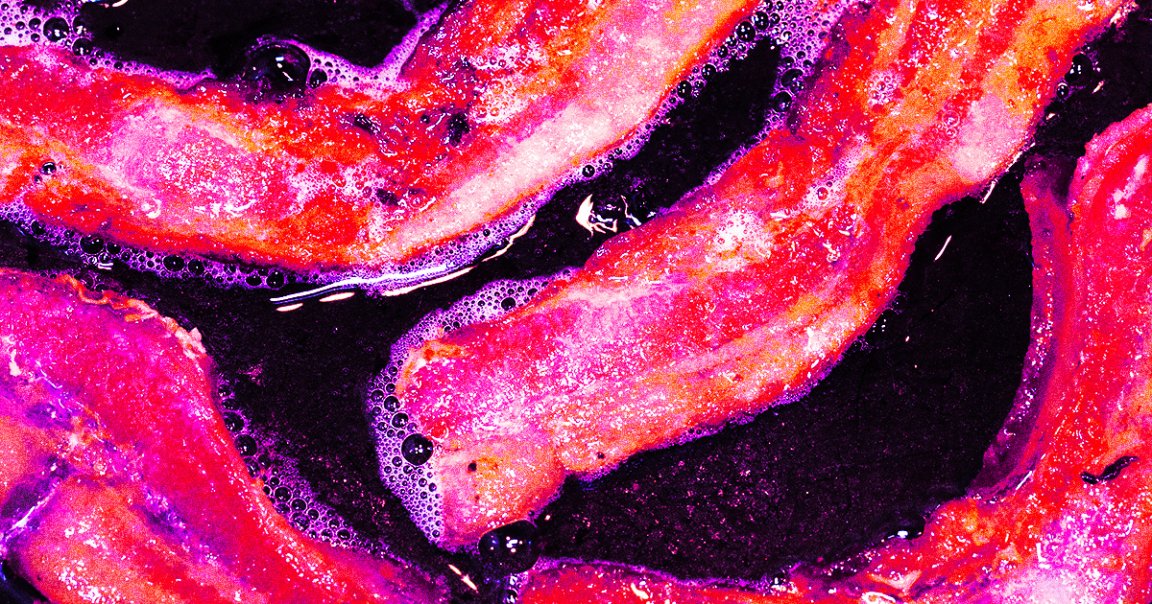
Meat Heads
If humans are going to transition away from eating animals, we’ll need to make the alternatives a lot tastier for the countless among us who will still have meat on their brains.
While the plant-based meat industry is floundering, and lab-grown meat still appears many years away from becoming a practical reality, a hybrid solution might be the ideal path forward: combining cultivated animal fat with existing plant-based products.
Getting a taste of this burgeoning trend was Yasmin Tayag at The Atlantic, who documents her experience trying some delicious, guilt-free bacon in a new essay.
“Even before I tried the bacon, or even saw it, I could tell it was different,” Tayag wrote. “The aroma of salt, smoke, and sizzling fat rising from the nearby kitchen seemed unmistakably real.”
“Then crunch gave way to satisfying chew, followed by a burst of hickory and the incomparable juiciness of animal fat,” she added.
Culinary Magic
These elevated strips of fake bacon featuring pork fat grown in a bioreactor were made by Mission Barns, a biotech startup from San Francisco. And it might’ve found the key ingredient to making ersatz meat more palatable.
As Tayag puts it, “animal fat is culinary magic,” a peerless combination of full-bodied flavor and juiciness that plant alternatives just can’t imitate. Plant replacements don’t cook the same, either, like the commonly used coconut oil, which melts out of its food too easily.
Another upside is that animal fat is far easier to grow compared to meat itself, since it only involves one type of cell, Mission Barns CEO Eitan Fischer told Tayag.
Ed Steele, co-founder of London-based cultivated fat company Hoxton Farms, told Tayag that they can make a convincing product by mixing a mere 10 percent cultivated fat with plant-based protein by mass.
Marketing Mishap
But even this slightly more conservative approach has its shortcomings, Tayag says.
For one, drizzling cultivated animal fat into plant-based products doesn’t exactly address their lack of great nutrition compared to regular meat, which is rich in protein.
Marketing it to a skeptical public will prove challenging, too. It’s not exactly plant-based meat, and it’s not exactly lab-grown meat. Previous attempts to bridge a similar gap were unsuccessful, like when companies in 2019 used the term “blended meat,” which “was a bit of a marketing failure,” Audrey Gyr at the pro-plant-based nonprofit Good Food Institute, told Tayag.
Above all, making the stuff remains a pricey process, and companies like Upside Food, the first and only of the industry to receive a go-ahead from the FDA so far, are years away from debuting their products to high-paying clients.
More on lab grown meat: Journalist Eats Lab-Grown Chicken, Gets “Weirdly Gassy”